At a barn sale recently, I had to smile when I spotted an entire rack of denim overalls. Apparently, along with boots and old farm tools, they’re now “vintage” enough to be trendy. Overalls were the only thing I ever saw my grandfather wear. In fact, I’ve never even seen a picture of him wearing anything else.
For decades, he wore them for fishing, gardening, bank meetings, and formal portraits. In 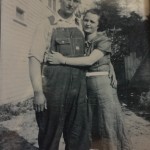 the hot sun of Panama City, Florida, he often wore them shirtless and commando, one shoulder strap dangling from the back. He’d wear them until the buttons wore out, and then he’d hitch them up and pin them with fishing tackle. Denim Dickies with a collared tan or blue work shirt were utilitarian and tough, features that pretty much summed up his personality, too. He was a big man, standing 6’4″, but seemed even taller with a full head of thick white hair that stood on end from running his hands through it.
the hot sun of Panama City, Florida, he often wore them shirtless and commando, one shoulder strap dangling from the back. He’d wear them until the buttons wore out, and then he’d hitch them up and pin them with fishing tackle. Denim Dickies with a collared tan or blue work shirt were utilitarian and tough, features that pretty much summed up his personality, too. He was a big man, standing 6’4″, but seemed even taller with a full head of thick white hair that stood on end from running his hands through it.
Like many in his generation, he grew up poor, scraping through the Depression in the deep South of Birmingham. Any work that could put food on the table was good enough for him. With just a 6th grade education under his belt, he worked on machinery, sold gasoline, and rented properties until he eventually owned a general store in Alabama. After several years of this, he pulled up stakes with his wife and four children and headed south to the Gulf, where he became one of the first to start a charter deep sea fishing business in Panama City.
He bought a fixer-upper boat in Tampa and headed north through a raging hurricane towards the docks that they would call home. His oldest son and younger daughter piloted the boat as it pitched and dipped through the stormy ocean, while he yelled at them to head straight into the walls of waves or they’d be swamped. When they finally docked in Bay County, he knew he’d picked a good vessel.
In the 50’s he invented a way to use electric motors that fed shells into machine gun turrets of B-29 bombers. He transformed these into electric fishing reels, bought all the surplus gun motors from across the country, and started a thriving business renting them to area fishermen. Heavy duty reels like these were essential in landing the 100-pound groupers they’d regularly catch in a day at sea.
We called him “Pappaw” only because it paired 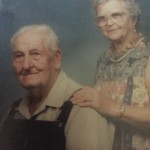 with “Mammaw,” our grandmother’s name, first uttered by a stray cat outside the screen door on her porch, mewling for food. “Meowmawww,” it cried endlessly, christening her forevermore.
with “Mammaw,” our grandmother’s name, first uttered by a stray cat outside the screen door on her porch, mewling for food. “Meowmawww,” it cried endlessly, christening her forevermore.
Together they raised four children. The youngest contracted spinal meningitis before he was two and, with the vintage medicine of 1947, was pronounced terminal. One thing you didn’t do was defy Pappaw, and he’d already told the doctors that wouldn’t happen. So they brought their boy home 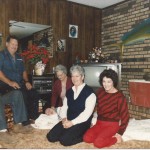 and he lived. His hospital bed was a permanent fixture in their house from then on until he died over 40 years later, my grandmother caring for his every need daily. This was the definition of a special needs child, before there were programs, help, or even a name for what they shouldered.
and he lived. His hospital bed was a permanent fixture in their house from then on until he died over 40 years later, my grandmother caring for his every need daily. This was the definition of a special needs child, before there were programs, help, or even a name for what they shouldered.
I remember Pappaw hoeing his garden, growing beans, tomatoes, corn and things for Mammaw to can in the summers. He’d sweat and spit and curse to himself as he coaxed 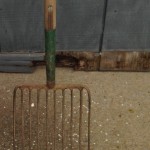 the sandy soil to cooperate. I think his secret fertilizer was fish guts, but I can’t prove it. I have a pitchfork that belonged to him. It sits in my barn with some other “vintage” tools, but I actually use it to clean the horse’s stall. I love its faded green paint and rusted tines, and the fact that the dirt and sweat from his laboring hands helped to make the wooden handle worn and smooth.
the sandy soil to cooperate. I think his secret fertilizer was fish guts, but I can’t prove it. I have a pitchfork that belonged to him. It sits in my barn with some other “vintage” tools, but I actually use it to clean the horse’s stall. I love its faded green paint and rusted tines, and the fact that the dirt and sweat from his laboring hands helped to make the wooden handle worn and smooth.
He is the epitome of vintage–a classic make from a certain time. The lessons I learned from his supper time lectures and from watching him work, hands never idle, are as much ingrained in me as the stains in the handle of the pitchfork. Vintage may be all the rage these days, and I love a good barn sale. I sure wish we could bring back the vintage “whos” along with the “whats”. Pappaw might have gotten a kick out of that rack of overalls. Wardrobe fit for a king.

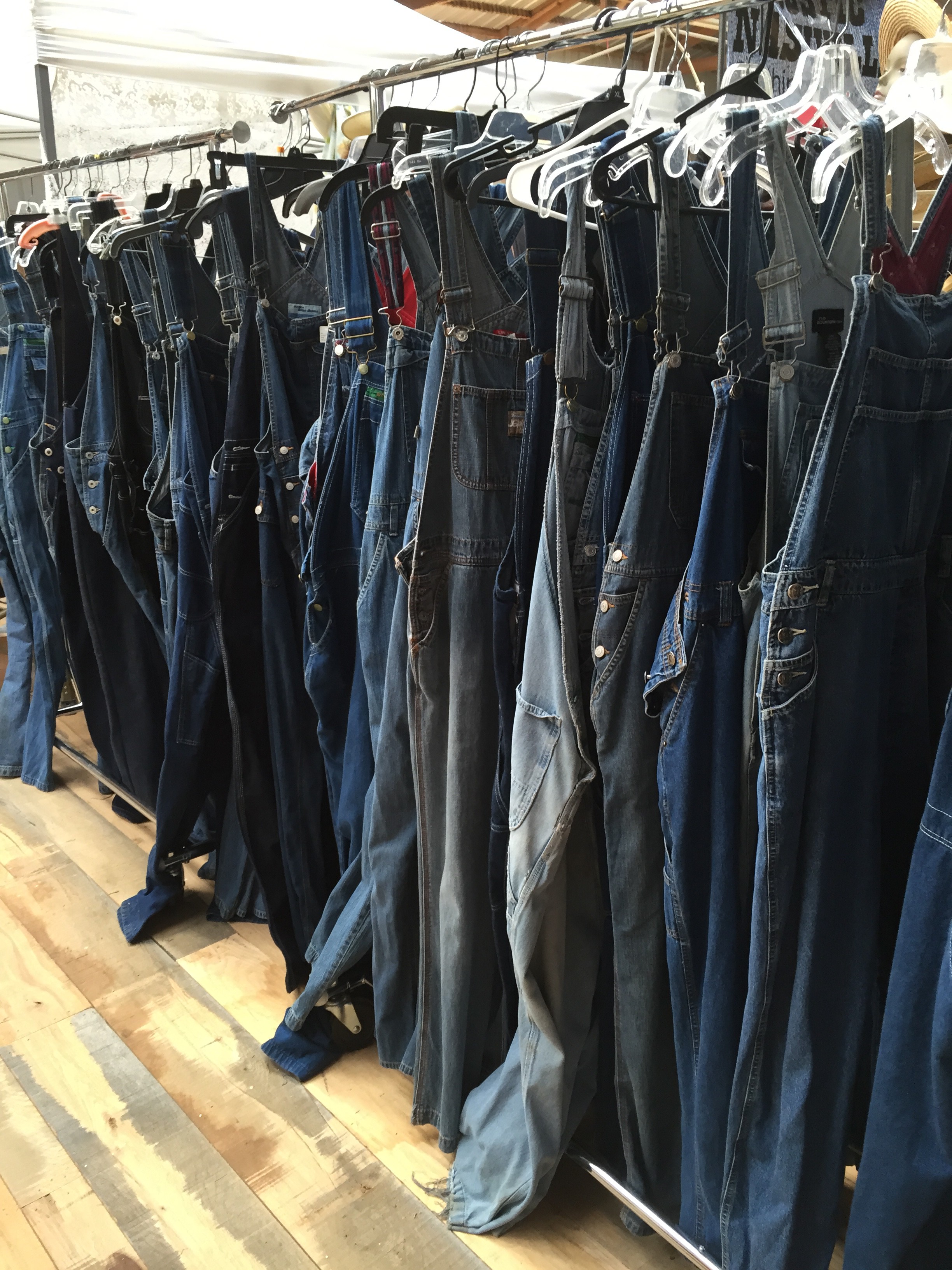







Love it! My Granddaddy Byford was a lot like your Pappaw. He had an 8th grade education, and had helped his mother support 5 younger siblings through the depression. He would never take any money from any of his relatives, and we had to justify every gift, because he would come home with his 13-year-old income, and his father would take it all to town and spend it on himself. When he wore a poorly-fitting plaid 1970’s polyester jacket to my wedding in 1987, I knew he loved me! We buried him in a new pair of overalls. He was my humble hero.